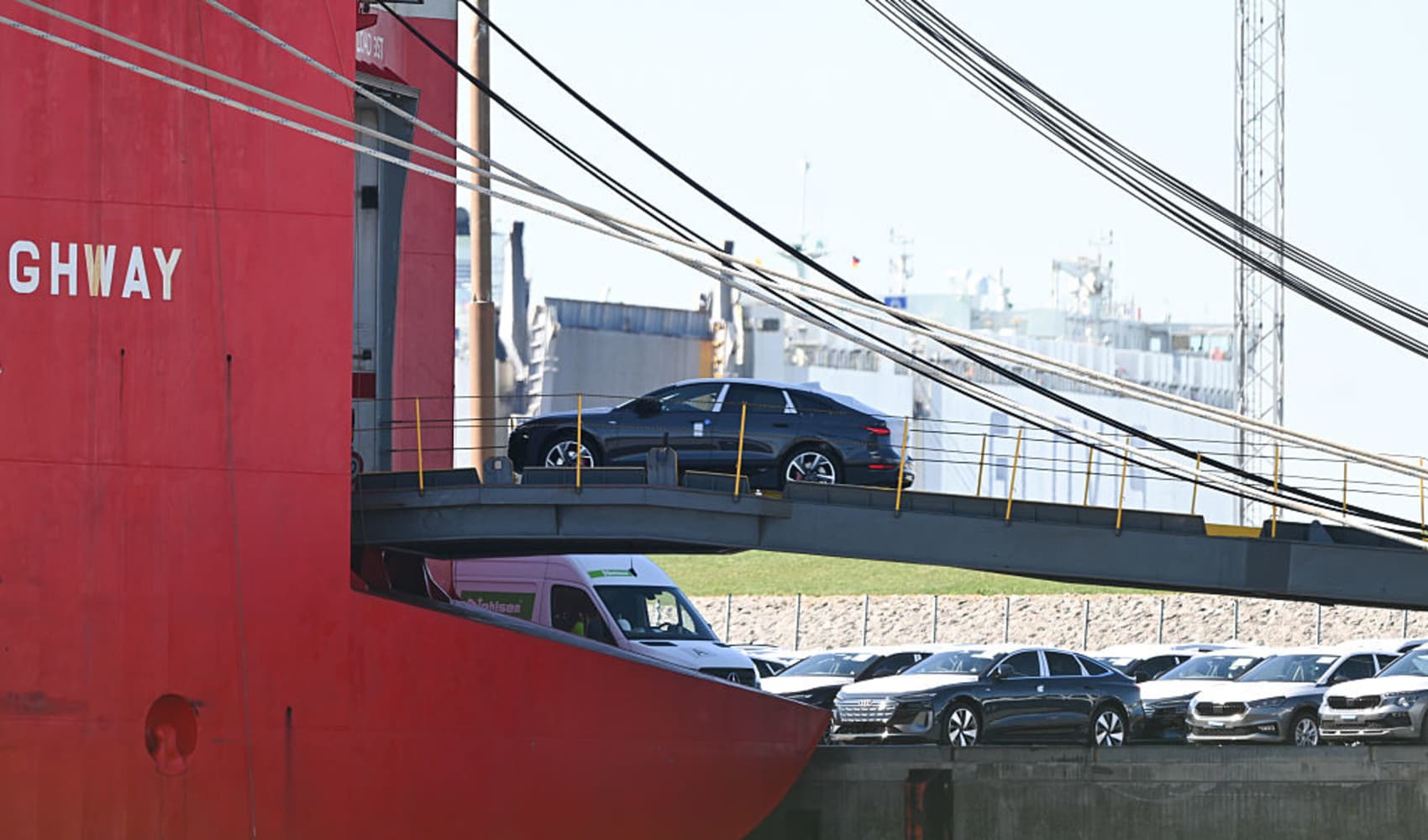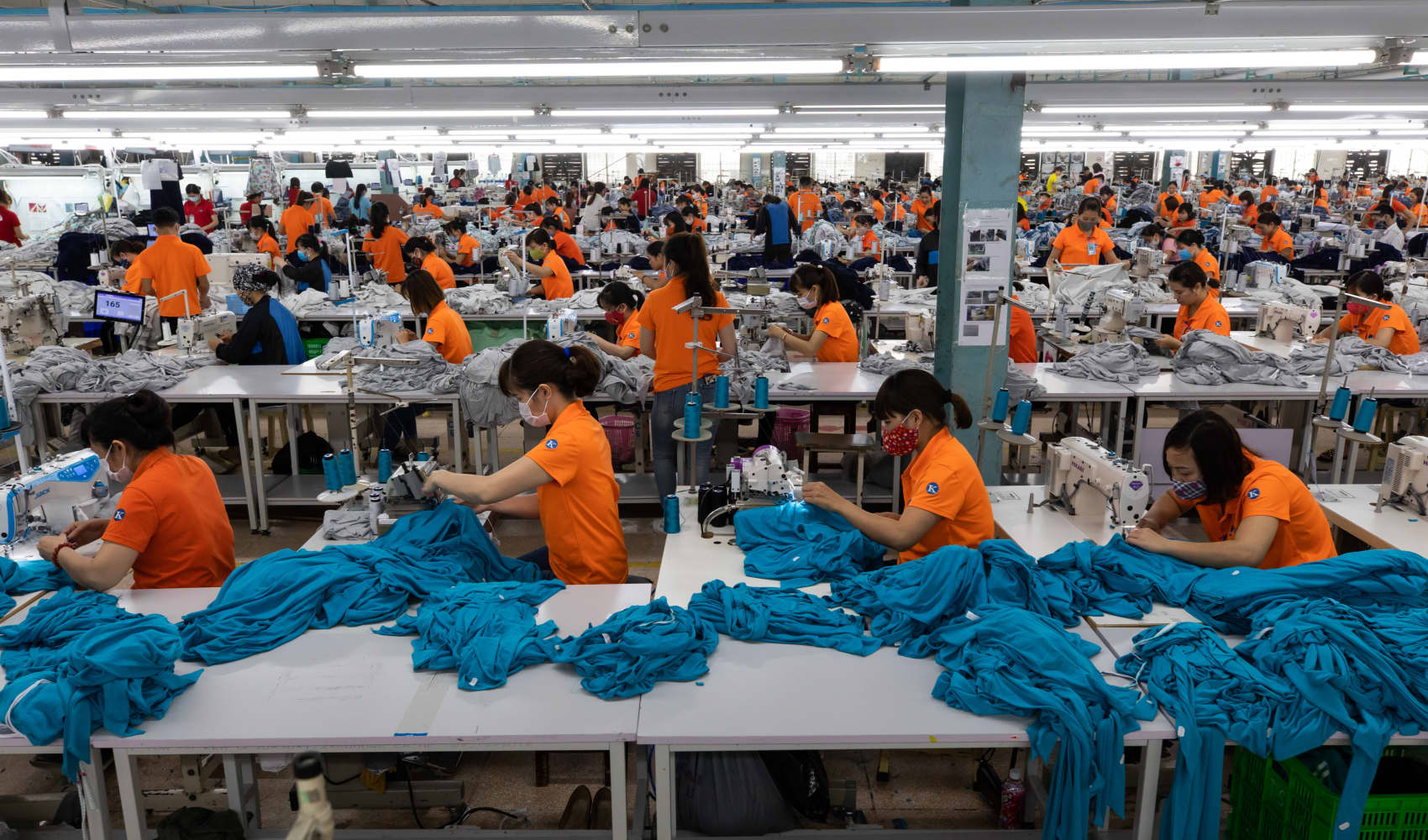Following Trump’s announcement of reciprocal tariffs, small business owners in Orange County say they are bracing themselves for the possible price hikes and fallout from the trade wars. Hetty Chang reports for the NBC4 News at 5 p.m. on April 2, 2025.
Gov. Gavin Newsom announced new plans Friday to distance the state of California from President Donald Trump's reciprocal tariffs, asking his staff to pursue “strategic relationships" with international trading partners to exclude state's products from their own retaliatory export tariffs.
“Donald Trump’s tariffs do not represent all Americans,” he said in a video posted on social media. “And on behalf of 40 million Americans that live in the great state of California … our state of mind is around supporting stable trading relationships around the globe."
TO OUR TRADING PARTNERS AROUND THE GLOBE — California is here and ready to talk.
— Gavin Newsom (@GavinNewsom) April 4, 2025
We will not sit idly by during Trump’s tariff war.
We make up 14% of the US GDP. We're the 5th largest economy in the world.
We’re not scared to use our market power to fight back against the… pic.twitter.com/yTfbcWW1sO
According to the plan, Newsom hopes to:
Get top local stories in Southern California delivered to you every morning. Sign up for NBC LA's News Headlines newsletter.
- Support job creation and innovation in industries reliant on cross-border trade.
- Promote economic stability for businesses and workers impacted by federal trade disruptions.
- Safeguard access to critical supplies, such as construction materials needed for recovery efforts following the devastating Los Angeles firestorms.
It’s not clear which trade partners the announcement is directly referring to and what direct next steps Newsom’s administration will take.
According to Article I, Section 10, Clause 2 of the Constitution, states do not have the authority to independently negotiate or make global trading deals regarding tariffs. As additionally outlined in Article 1 Section 8, only the federal government reserves the right to do so.
Trade with Mexico, Canada and China is vital for California’s economy. Last year, almost half of the state's imported goods came from the three nations, totaling $203 billion in trade. The three countries buy an additional $67 billion worth of exported goods from California.
Mexico and Canada dodged the latest round of retaliatory tariffs, however, China now faces fees upwards of 54%.
Twenty-five percent automotive tariffs will still apply to all three.
California imported $491 billion worth of goods in 2024, the most of any U.S. state. California exported an additional $183 billion, the second most behind Texas.
“California leads the nation as the #1 state for agriculture and manufacturing — and it’s our workers, families, and farmers who stand to lose the most from this Trump tax hike and trade war,” Newsom wrote Friday. “To our international partners: As the fifth largest economy in the world, the Golden State will remain a steady, reliable partner for generations to come, no matter the turbulence coming out of Washington. California is not Washington, D.C.”
Analysis by the Yale Budget Lab found tariffs will most likely result in a 2.3% increase in overall inflation across the coming year. That includes a 2.8% increase in food prices and an 8.4% increase in automotive prices – a roughly $3,800 annual increase in prices for the average American family.
During Newsom’s governorship, the state has signed 38 international trade agreements with 28 partners.
Industry in Los Angeles is already bracing itself, starting at the Ports of LA and Long Beach.
“Overall, this is bad for the American consumer, American business and for the port complex here in Southern California,” Seroka said, adding the ports process some 40% of the nation’s imports and 30% of the exports.
Currently one in nine SoCal residents are employed through the port, including those in the shipping, logistics, transportation and warehousing industries.
“Whether you're on the docks, or you're a forwarder and broker in our community, fewer containers mean less jobs here around the port,” he explained.



